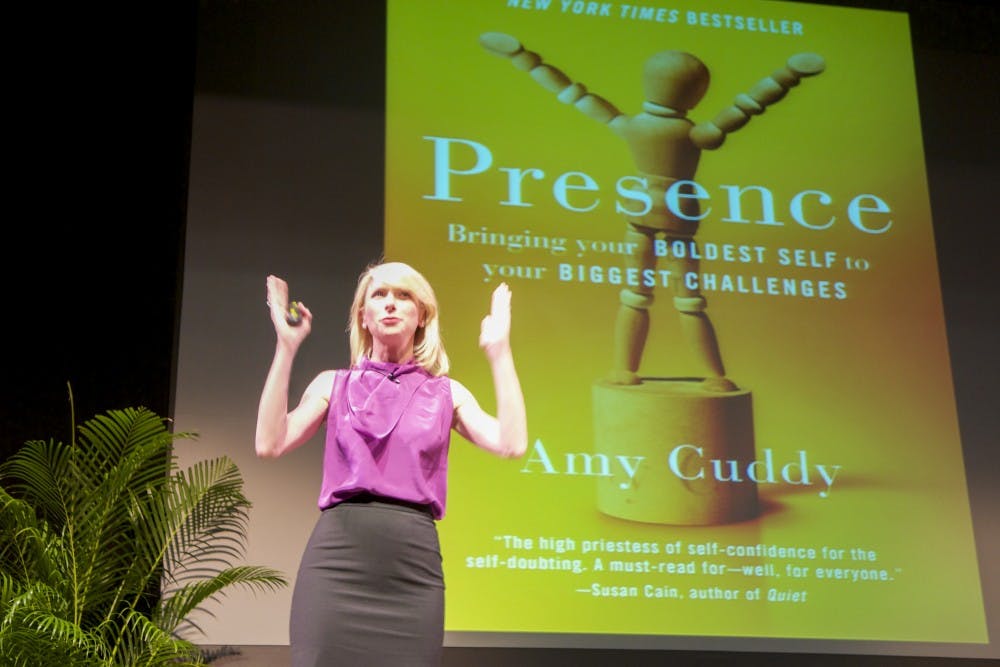
Social psychologist Amy Cuddy spoke at Penn for the Authors@Wharton Speaker Series. Her talk was on “how our bodies shape our minds.”
Credit: Freda ZhaoPenn professor Adam Grant donned a Superman T-shirt and cape as he welcomed speaker Amy Cuddy onto the stage of Zellerbach Theater. He struck a power pose — the posture that made Cuddy a world renowned speaker.
Cuddy spoke to an audience of Penn students and faculty about “how our bodies shape our minds,” as part of the Authors@Wharton Speaker Series. Cuddy is a social psychologist and associate professor at Harvard Business School, as well as a speaker and author.
Cuddy’s 2012 TED Talk on “power poses” is the site’s second most viewed video of all time. After her successful talk, she accepted speaking invitations from around the world. A year later, she published a New York Times Bestseller entitled “Presence: Bringing Your Boldest Self to Your Biggest Challenges.”
“When we feel powerful, we expand. When we feel powerless, we shrink,” Cuddy said. “Women in particular often shrink in public settings,” Cuddy said. “These postures are associated with powerlessness and intimidation and keep people back from expressing who they really are,”
Authors@Wharton invites speakers based on the votes made by a committee of undergraduate and MBA students. “Amy was high on our list,” Director of Marketing and Communications Kate FitzGerald said.
Grant asked Cuddy how she remains poised under pressure, and she cited a moment when she teared up onstage while telling a story about a devastating brain injury she sustained at the age of 19. She was a student at the University of Colorado and doctors told her she might struggle to regain full mental capacity and finish college. The brain injury had caused her IQ to drop by two standard deviations.
Cuddy finished her undergraduate degree in spite of her doctors’ predictions and went on to earn her doctorate at Princeton in social psychology. But she suffered acutely from imposter syndrome — she believed she did not deserve to be there and worried that she would be discovered as a fraud.
She was so afraid to give her first-year talk as a Ph.D. student she told her adviser she was quitting. Her advisor told her “fake it ‘till you make it,” and she went through with the presentation, feigning confidence all the way to Harvard Business School.
Her insight into the relationship between mind and body comes from her own research that found that lab participants who spent two minutes in a room alone doing high-power poses increased their testosterone levels by about 20 percent and lowered the stress hormone cortisol by about 25 percent.
Cuddy ended her talk with a quote from Maya Angelou.
“Stand up straight and realize who you are, that you tower over your circumstances,” she said. “Stand up straight.”
The Daily Pennsylvanian is an independent, student-run newspaper. Please consider making a donation to support the coverage that shapes the University. Your generosity ensures a future of strong journalism at Penn.
DonatePlease note All comments are eligible for publication in The Daily Pennsylvanian.




